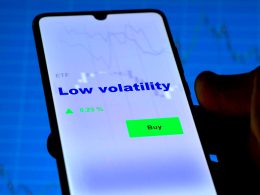by George Maris & Ryan Myerberg, Janus Capital Group
One of the biggest sources of uncertainty for global markets this year has been significantly reduced, if not eliminated, by the news that Emmanuel Macron will face off against Marine Le Pen in the final round of voting for the French presidency.
Mr. Macron, a center-left political neophyte, leads far-right candidate Ms. Le Pen by a margin of about 20 points in most polls. While polls are likely to tighten ahead of the May 7 runoff, Ms. Le Pen has a mountain to climb to wrench the keys to the Élysée Palace from Mr. Macron, an economy minister in François Hollande’s Socialist government. Following the April 23 first round vote, Mr. Macron gained the support of center-right Les Republicains candidate François Fillon and Socialist Benoît Hamon, indicating that the establishment will coalesce around the newcomer.
A win for Mr. Macron, the youngest of 11 first-round presidential candidates who only formed his En Marche! party last year, would likely be a boon for equities not only in France, but globally.
Mr Macron appeals to those in France who want a break from the establishment parties and his globalist, pro-European, pro-economic reform policies act as a clear counterpoint to Ms. Le Pen’s anti-EU, anti-immigration and protectionist viewpoints.
Should Mr. Macron win and gain support from the center-right Les Republicains, who are expected to win the most seats in the legislative elections on June 11 and 18, he will seek to relax rigid regulations that have been viewed as making the country uncompetitive. With such inhibitors to economic growth removed, the potential of the eurozone’s second-largest economy could be unleashed.
While that opportunity presents upside potential for French assets, the outlook for global investors has also materially improved, given the removal of an existential threat to the European Union itself.
A run-off rejection of Ms. Le Pen would remove any possibility of a financial crisis caused by concern that EU founding member France could follow the UK out of the bloc, thus placing in jeopardy the entire project.
By choosing Mr. Macron and removing the prospect of “Frexit” and a return of the franc, a significant sell-off could be avoided, along with the possibility of bank runs, capital controls and credit losses that may destabilize France and Europe, leading to global contagion.
Under Mr. Macron, the existential risk to the EU evaporates, stabilizing the political picture and giving investors a window of opportunity in continental Europe that they have lacked for a long time. While equities are certainly not historically cheap, European stocks, especially in cyclical sectors, are trading at some of the lowest valuations in the world.
The removal of political headwinds and improving economic data over the past six to nine months will likely encourage investors to rotate out of safety trades, which have arguably been even more dominant in Europe than in the U.S. in recent years. Caution has led to gains in haven assets such as German and Japanese government debt, the yen and low-volatility equities, and weakness in more volatile asset classes such as financials, energy, industrials, peripheral debt and French sovereign bonds.
Now cyclical equities in France, Spain and other peripheral European countries may outperform financial and industrial stocks in Germany, historically viewed as the safest bet in continental Europe.
But the benefits of a win for Mr. Macron will be felt globally, likely spurring a significant rally in risk assets as he implements his reforms in the world’s sixth-biggest economy.
Copyright © Janus Capital Group















